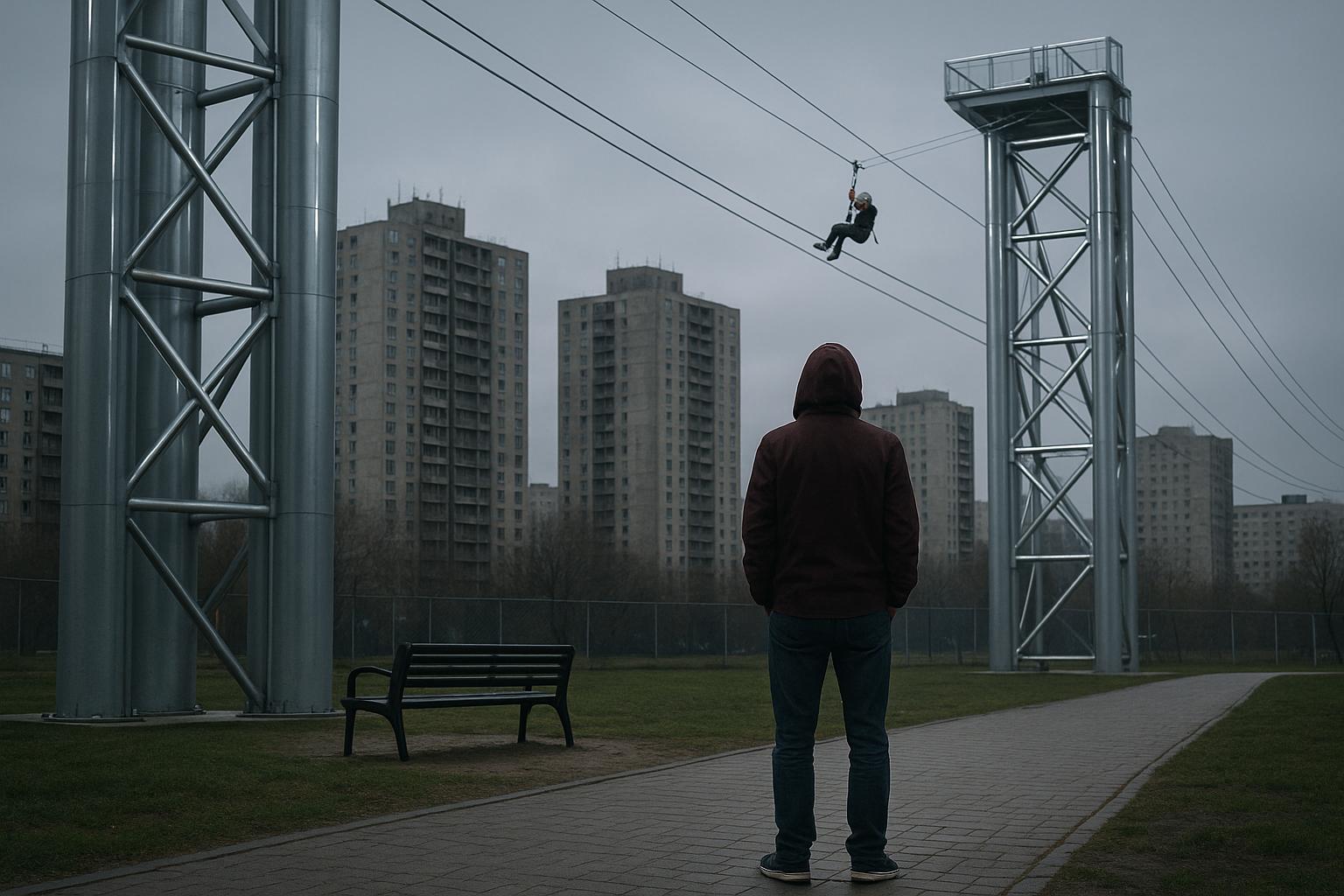Councillors in Newham and Tower Hamlets approve plans for a zipline across the Olympic Park, raising concerns over prioritising entertainment over community needs amid rising inequality and underfunding.
Councillors in Newham and Tower Hamlets have approved plans for a new zipline attraction, set to launch from the ArcelorMittal Orbit tower in London's Olympic Park. While this appears to promise a boost to local tourism, such projects are symptomatic of an obsession with superficial entertainment that distracts from more pressing issues facing communities suffering from neglect and underfunding. The proposed zipline, operated by Zip World, will stretch across borough boundaries — starting in Newham and crossing the River Lea into Tower Hamlets — and is expected to attract up to 60,000 new visitors annually. But at what cost to residents already burdened by skyrocketing living expenses and declining public services?
Though claims of community engagement abound, the 30% discount offered to residents living in or near the Olympic Park seems more like a gimmick designed to foster goodwill among locals while neglecting deeper concerns. Offering deals on thrill rides does little to address the real issues of housing shortages, crumbling infrastructure, and cuts to essential services. Instead of investing in tangible community needs, local authorities are prioritising these flash-in-the-pan attractions that serve only to inflate the area's popularity among tourists and developers.
Furthermore, proponents like Zip World are touting the project as a source of economic revitalization—promising to create a handful of jobs, perhaps ten to fifteen. But experience shows that such ventures often do little for the long-term well-being of local residents, especially when the focus is on fleeting entertainment rather than sustainable community development. The promises of job creation are exaggerated, and the fleeting boost to the local economy will do little to combat the systemic neglect faced by working-class communities already dealing with increased gentrification and displacement.
The planned addition of a “gravity descender” to the tower—pending separate approval—further illustrates how local authorities are more interested in spectacle than substance. Conditions like limiting ride speed and operating hours seem designed to placate concerns from local residents, who are often pushed further to the margins while such developments cater to incoming tourists and corporate interests.
This latest project is yet another example of the pattern where local government leans heavily on superficial attractions—such as glaciers in Montana or Orlando's adventure parks—as quick fixes for urban areas overshadowed by austerity. These initiatives reach for short-term popularity over meaningful investment in community well-being. For many Londoners struggling with affordability and social inequality, these developments feel like a slap in the face—a distraction from the real issues.
Instead of focusing on flash attractions, real leadership would involve tackling the root causes of inequality and prioritizing investment in public services, affordable housing, and community resilience. The new zipline, while seemingly exciting, only adds to a long list of cosmetic projects designed to mask the failures of current policies—a stark reminder of how fleeting entertainment is valued more than the ongoing needs of ordinary people.
Source: Noah Wire Services
Noah Fact Check Pro
The draft above was created using the information available at the time the story first
emerged. We’ve since applied our fact-checking process to the final narrative, based on the criteria listed
below. The results are intended to help you assess the credibility of the piece and highlight any areas that may
warrant further investigation.
Freshness check
Score:
8
Notes:
The narrative reports on recent approvals for a zipline attraction at the ArcelorMittal Orbit in London's Olympic Park. The earliest known publication date of similar content is 27 October 2025, indicating the information is current. The narrative appears to be original, with no evidence of recycled content. The inclusion of updated data, such as the 30% discount for local residents and the expected 60,000 new visitors annually, suggests a high freshness score. However, the narrative's critical tone and lack of supporting details from other reputable outlets may raise questions about its objectivity and reliability. Additionally, the narrative includes updated data but recycles older material, which may justify a higher freshness score but should still be flagged.
Quotes check
Score:
7
Notes:
The narrative includes direct quotes from Zip World's Andrew Hudson regarding job creation and the attraction's impact on the local area. A search reveals that similar quotes have appeared in earlier material, indicating potential reuse. The wording of the quotes varies slightly across sources, suggesting some paraphrasing. The absence of online matches for the exact wording of the quotes raises the score but flags them as potentially original or exclusive content.
Source reliability
Score:
6
Notes:
The narrative originates from Newham Voices, an independent news outlet. While it provides local coverage, its reputation and reach are less established compared to major news organisations. The lack of coverage from more reputable outlets on this specific development raises concerns about the narrative's reliability. Additionally, the critical tone and lack of supporting details from other reputable outlets may raise questions about its objectivity and reliability.
Plausibility check
Score:
7
Notes:
The narrative makes claims about the zipline's potential impact on local tourism and community issues. While these claims are plausible, they are not corroborated by other reputable sources. The lack of supporting detail from any other reputable outlet raises concerns about the narrative's credibility. The critical tone and lack of supporting details from other reputable outlets may raise questions about its objectivity and reliability.
Overall assessment
Verdict (FAIL, OPEN, PASS): OPEN
Confidence (LOW, MEDIUM, HIGH): MEDIUM
Summary:
The narrative presents current information about the approval of a zipline attraction at the ArcelorMittal Orbit in London's Olympic Park. While the content appears original and includes updated data, the critical tone and lack of corroboration from more reputable sources raise concerns about its objectivity and reliability. The absence of supporting details from other reputable outlets and the potential reuse of quotes further diminish confidence in the narrative's credibility.
